Scotland – Day 4: The Right to Roam
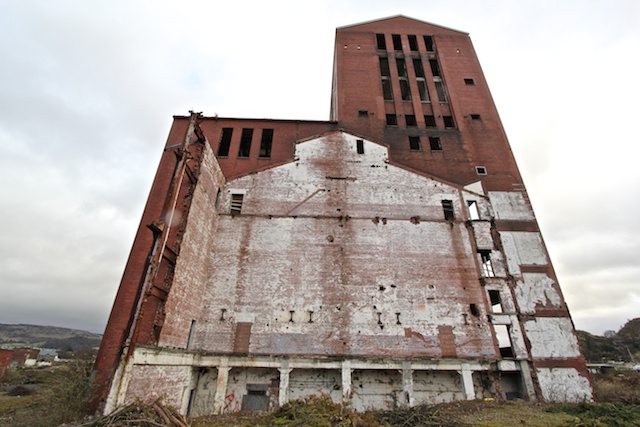
As I was finishing up breakfast at the Old Excise House this morning, Ron told me about a very special law in Scotland often referred to as "the right to roam." It basically states that you're allowed the freedom to go wherever you want, even private property, as long as you keep moving. For example, you can take a walk through a private beach even if it's owned by someone else, but you can't put down a chair and start fishing for a few hours.
"That's great to hear," I said, quite fascinated by this new information. Why was that welcome news, you ask? Because on travel days without appointments (like today) David and I like to hunt down former distillery sites and explore them if they're on the way to where we're going – especially if they're related to casks we're interested in purchasing. We tasted through a few Dumbarton grain casks with Stewart Laing on Thursday evening, so we definitely wanted to see what was left of the former grain distillery and its demolished single malt hub Inverleven. Luckily for us, we had the "right to roam" on our side, so we found the abandoned site, hopped over the fence, and roamed on into the decimated rubble.
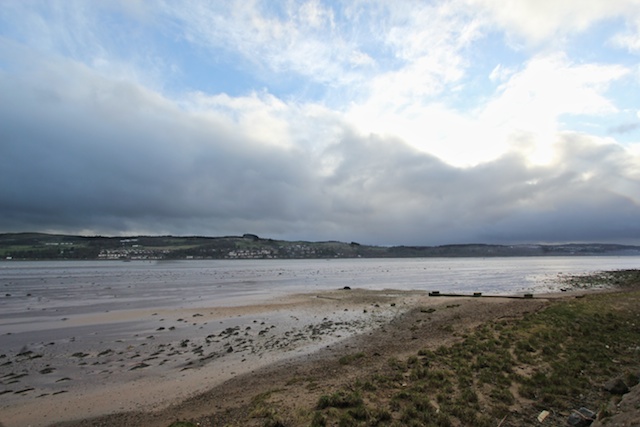
The town of Dumbarton sits along the River Leven, right about where it feeds into the larger Clyde River. In the background, on top of a large volcanic rock jutting out of the water, sits Dumbarton Castle – a stronghold that dates back to the 5th century. With the light fading fast and tide rolling in we dodged the various bricks and sharp rocks, scaled the piles of debris, and walked around the remaining brick structure that was closed forever in 2002.
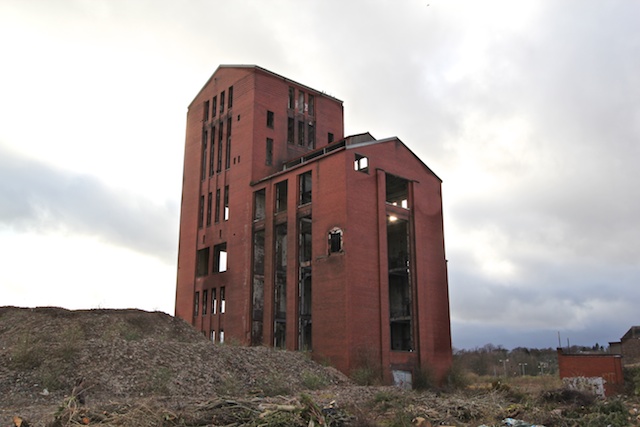
Dumbarton distillery was erected in 1938 by George Ballantine & Son to help create the Ballantine's Blended brand in conjunction with Miltonduff and Glenburgie. At the time it was built it was the largest distillery of its kind in Europe. In 1988, Ballentine's merged with Allied Domecq who would mothball the site fourteen years later, switching production to the newer and more efficient Strathclyde distillery in Glasgow. Pernod-Ricard bought the Ballantine's brand in 2005 and continues to use the plentiful warehouse space in Dumbarton just a mile or so down the road from the former distillery.
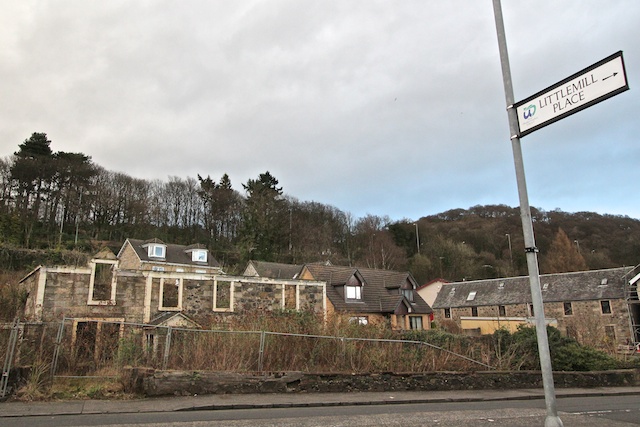
One rule that David and I have developed over the years during these scavenger hunts is that we are not allowed to use the internet to find our goal. We are allowed to use vague geographical maps, verbal directions from locals, and photos in books to try and match the terrain, but we absolutely cannot Google search directions. What would be the fun in that?
"Should we try and hunt down Littlemill as well?" David asked. "It's supposed to be nearby, I think."
"Let's see if we can find someone who remembers the distillery," I said, and we drove around looking for the right local to ask. Usually the best candidates for these types of questions are males in their late 40s or early 50s, so when we spotted two blokes smoking a couple of fags out in front of a nearby restaurant I hopped out of the car and went to work.
"Yeah, I remember it," one of the guys said. "It's in a town called Bowling. It's all houses now, but there's at least one building left and there's a bar called the Horseshoe in front of where it used to be."
David remembered having passed the sign for Bowling a few miles back, so we made a U-turn and headed back in search of the Lowland legend. Littlemill had been dismantled in 1996, but the buildings remained until 2004 when a fire gutted most of what was left. We looked for more modern housing, found the bar, and noticed that the new apartments were located on an inlet called Littlemill Place. Behind the sign stood a delapidated frame that matched the picture in our Malt Whisky Yearbook.
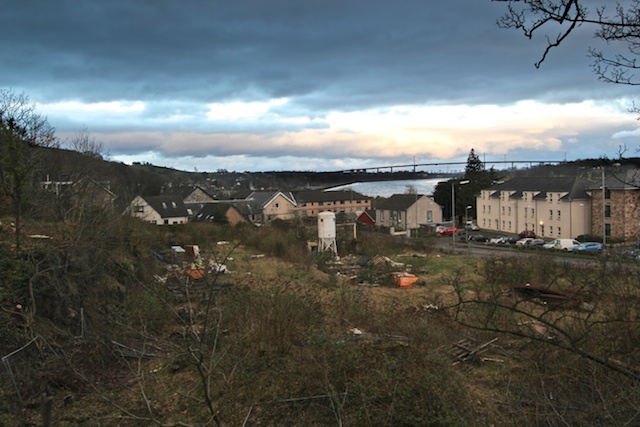
We walked up the hill above the old site to get a better look. As the sun went down and the bridge stood starkly in the distance beneath it, we gazed upon what was once a center for whisky production and remembered our old Faultline expression from a few years back. Then we thought about the new cask of Littlemill we had just tasted a few nights back and smiled.
-David Driscoll
